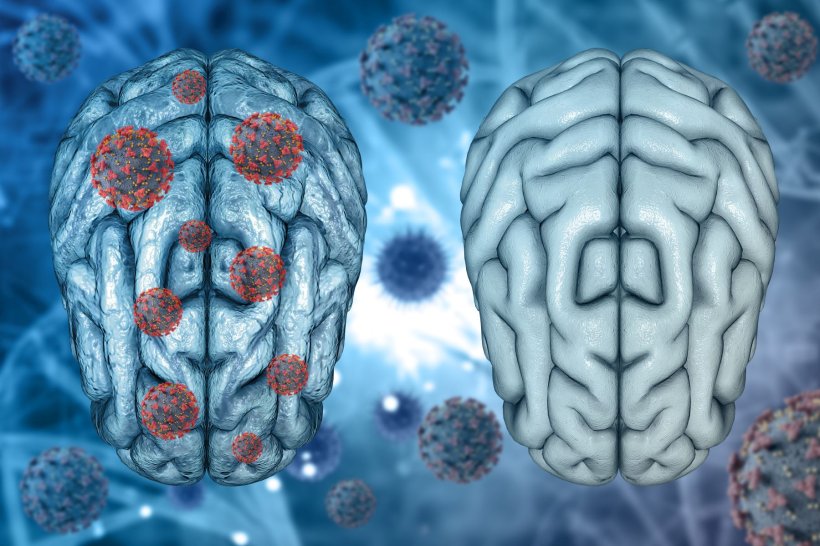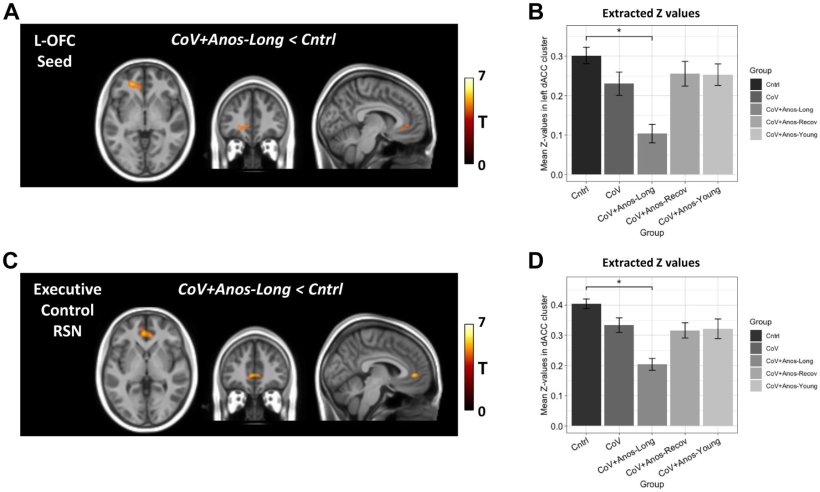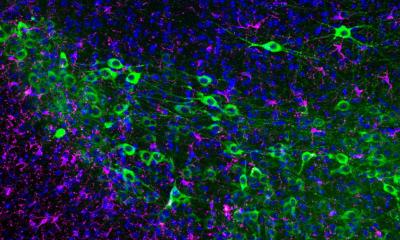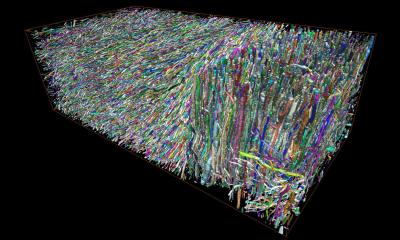
Image source: Adobe Stock/Kirsty Pargeter
News • Long Covid & Neuroscience
Long COVID: correlation between smell loss and changes in the brain
People living with long COVID who suffer from loss of smell show different patterns of activity in certain regions of the brain, a new study led by University College London (UCL) researchers has found.
The research used MRI scanning to compare the brain activity of people with long COVID who lost their sense of smell, those whose smell had returned to normal after COVID infection, and people who had never tested positive for COVID-19.
Published in eClinicalMedicine, the observational study found that the people with long COVID smell loss had reduced brain activity and impaired communication between two parts of the brain which process important smell information: the orbitofrontal cortex and the pre-frontal cortex. This connection was not impaired in people who had regained their sense of smell after COVID.
The findings suggest smell loss, known as anosmia, caused by long COVID is linked to a change in the brain that stops smells from being processed properly. Because it's clinically reversible, as shown in some subjects, it may be possible to retrain the brain to recover its sense of smell in people suffering the side effects of long COVID.
Dr. Jed Wingrove (UCL Department of Medicine) the lead author of the study, said, "Persistent loss of smell is just one way long COVID is still impacting people's quality of life—smell is something we take for granted, but it guides us in lots of ways and is closely tied to our overall well-being. Our study gives reassurance that, for the majority of people whose sense of smell comes back, there are no permanent changes to brain activity."

Image source: eClinicalMedicine (2023). DOI: 10.1016/j.eclinm.2023.101883
Detailed image description
A In hot colors, significant clusters overlaid on the MNI template showing increased functional connectivity between the right OFC seed and the right visual association cortex/fusiform gyrus, in the CoV+Anos-Long group compared to the Cntrl group.
B Mean Z values extracted from the right fusiform cluster for each group.
C Significant clusters overlaid onto an MNI template showing increased connectivity between the left anterior insula seed and the left Crus I region of the cerebellum, in the CoV+Anos-Long group compared to the Cntrl group.
D Mean Z values extracted from the left Crus I cluster for each group. ∗ denotes the significant group comparisons for whole brain analysis, statistics was not performed on extracted values. Both Statistical Parametric Maps were obtained using a cluster significance threshold set to p < 0.05.
Regaining the sense of smell through training
Joint senior author, Professor Claudia Wheeler-Kingshott (UCL Queen Square Institute of Neurology), said, "Our findings highlight the impact COVID-19 is having on brain function. They raise the intriguing possibility that olfactory training—that is, retraining the brain to process different scents—could help the brain to recover lost pathways, and help people with long COVID recover their sense of smell."
Researchers say their findings also suggest that the brains of people with long COVID smell loss might be compensating for this lost sense by boosting connections with other sensory regions: their brains had increased activity between the parts of the brain that process smell and areas that process sight (the visual cortex).
"This tells us that the neurons that would normally process smell are still there, but they're just working in a different way," said Dr. Wingrove.
Professor Rachel Batterham (UCL Division of Medicine), also joint senior author of the study said, "This is the first study to our knowledge that looks at how brain activity changes in people with long COVID smell loss. It builds on the work we undertook during the first wave of the pandemic, which was one of the first to describe the link between COVID-19 infection with both loss of smell and taste."
Source: University College London
19.04.2023





